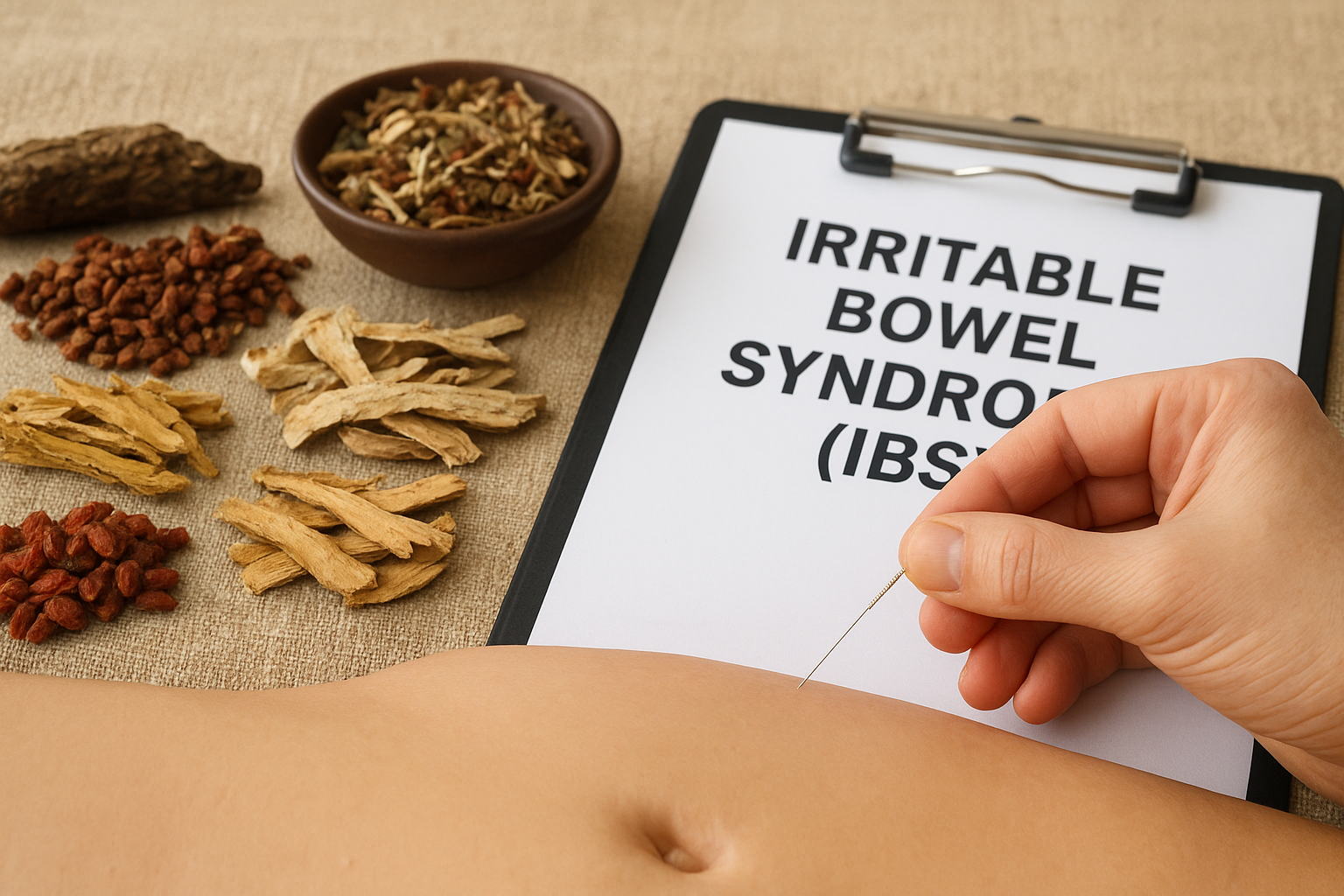
Irritable Bowel Syndrome (IBS) is usually unresponsive to conventional therapy, and Acupuncture and herbs can provide treatments for root cause of IBS. In the world of TCM, IBS is not regarded as simply a digestive problem but as an imbalance among the body’s systems, primarily dysfunction of the spleen, liver, and large intestine. Chinese herbs are designed to bring this internal terrain back to balance, and acupuncture uses autonomic nervous system regulation, endocrine system regulation, and immune system regulation to treat underlying pathology and symptomatology.
Use of Chinese Herbs for Treating IBS
Recent meta-analyses of RCTs supported the effectiveness of CHM for IBS. One high-quality review of ten trials consisting of 2,501 patients found positive effects of CHM (76% higher odds for global IBS symptoms adequate relief when compared to placebo, and 85% more reduction in abdominal pain and bloating).
A more recent meta-analysis, the focus of which centered on the traditional formula Si Shen Wan (SSW), which is predominantly prescribed for IBS‑D, encompassed 34 studies and reaffirmed its efficacy for decreasing symptom severity, normalizing intestinal barrier proteins (Claudins), cytokine modulation, and motility. Combined application of Si Shen Wan with moxibustion also decreased the recurrence rate of IBS.
Clinical Trials Proving Acupuncture Reduces IBS Severity
Acupuncture also holds up under randomized and sham-controlled clinical trials. A large multicenter randomized sham‑controlled 2024 study recruited 170 patients with refractory IBS and showed a reduction of 140 in the scores of the IBS‑Symptom Severity score for real acupuncture versus 64 for the sham group, that is, the symptom severity score in both groups differed significantly from one another by 76. Outcomes were sustained up to a four-week follow‑up without major side effects.
A systematic review of 31 RCTs of acupuncture and IBS and moxibustion found that IBS symptom severity scores and abdominal pain were significantly reduced while improving the quality of life with moderate to high certainty.
How do the Herbs and Acupuncture Work Hand in Hand?
According to the TCM theory, acupuncture combined with Chinese herbs has a synergistic effect on IBS. Experimental studies indicate that herbal formulas such as Tong Xie Yao Fang (TXYF) inhibit colonic hypermotility and visceral hypersensitivity through the modulation of receptors, inflammatory cytokines, and gut hormones. Acupuncture suppresses motility-associated protein expression and improves the blood flow to the gut linings to balance all the hormones, such as serotonin, to optimize the bowl movement, as well as stress-related neural signals, to quell IBS‑D symptoms and eliminate the root cause. If you screen all the traditional Chinese formulas, it all includes the herbs to improve the gut health, either for depression, IBS, headache, anxiety, infertility, ED and all the other diseases.
Conclusions
However, when looking at natural, scientifically probable treatments for IBS, Chinese herbs and acupuncture for IBS hold real promise. Several trials show that symptoms are significantly decreased, the effects last after the treatment stops, and that the side effects are few. Case studies additionally advance knowledge on their mechanisms. Combining herbal formulas such as SSW or TXYF with acupuncture yields multi-dimensional relief: reducing the abdominal pain or bowel irregularity and promoting long-lasting gut well-being. Make sure a registered TCM practitioner should always be consulted to select and customize suitable treatments for IBS with acupuncture and Chinese herbs.
References-
- https://pmc.ncbi.nlm.nih.gov/articles/PMC6487118/
- https://pmc.ncbi.nlm.nih.gov/articles/PMC8353248/
- https://www.frontiersin.org/journals/pharmacology/articles/10.3389/fphar.2025.1534904/full
- https://www.frontiersin.org/journals/pharmacology/articles/10.3389/fphar.2025.1534904/
- https://pmc.ncbi.nlm.nih.gov/articles/PMC6487118/
